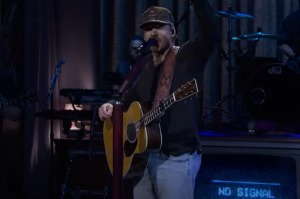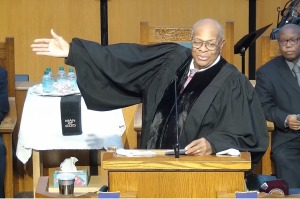S.C. Bishop Accused of Accelerating Splits from Episcopal Church
An Episcopal advocacy group has requested an investigation of the leadership of the Diocese of South Carolina with regard to the withdrawal of parishes from the denomination.
The Episcopal Forum accused leaders in the diocese of "accelerating the process of alienation and disassociation" from The Episcopal Church.
"The Ecclesiastical Authority (the Diocesan Bishop or the Standing Committee) has done nothing to stop other parishes which outwardly appear to be moving in the direction of withdrawal from TEC," the group wrote in a letter sent this week to bishops throughout the national church body.
The group, which supports preserving "unity with diversity" in the denomination, also called The Episcopal Church to look into the lack of disciplinary action against a parish that left the South Carolina diocese earlier this year, and the removal of all "Episcopal" references in the names and websites of dozens of parishes.
"Actions and inactions of the Bishop appear to be tantamount to an abandonment of the polity of The Episcopal Church," the group argued.
The request for a probe comes a year after the diocese voted to begin withdrawing from all bodies of The Episcopal Church that have assented to actions contrary to Scripture and Anglican tradition. The withdrawal, however, was not a complete split from the national church.
Responding to the call for an investigation, South Carolina Bishop Mark Lawrence refuted the allegations outlined in the letter.
Rejecting the claim that he has done nothing to stop parishes from leaving, he said he and his staff have spoken with the leadership of every parish in the diocese that was considering disassociation.
"[W]e have counseled patience and have received assurances that their intention is not to leave," he highlighted.
Lawrence also explained that disciplinary or legal action was not taken against St. Andrew's Parish in Mt. Pleasant, which severed ties in March, because litigation has only resulted in the "sour fruit of animosity."
A previous legal action against a parish had drained the diocese of more than half a million dollars, he noted, not to mention the broken relationships that came out of it.
"These are Christians with whom we have served side by side in the service of our Lord," he stressed. "You cannot make people love you, or bind them to your Church through coercion or fear. But if the Christian graces prevail may we not yet see our unity restored?"
Lawrence also noted that the word "Episcopal" remains in much of their signage. The charge that over 25 parishes have taken out "Episcopal" from their names or websites or no longer have any mention of The Episcopal Church is absurd, Lawrence said.
"[A]s I drive around this diocese on visitations I see the familiar The Episcopal Church Welcomes You sign as a ubiquitous presence," he said.
Since the 2003 consecration of the first openly gay bishop, tensions have remained high in the denomination. Thousands of Episcopalians severed ties with The Episcopal Church and in 2009 formed a separate denomination called the Anglican Church in North America.
Though frustrated over the "unbiblical" direction of The Episcopal Church, Lawrence encouraged the Diocese of South Carolina to remain and fight from within.
He has urged his diocese to stand on Scripture and the traditions of the Christian faith as they engage in a "battle" against what he sees as the "false gospel" in The Episcopal Church.
Next month, the Diocese of South Carolina will reconvene its 219th convention where they will consider resolutions that would protect the diocese from "unconstitutional intrusions" by the presiding bishop and affirm its "sovereignty."
"It is increasingly clear that we are engaged in a worldwide struggle for the soul of Anglicanism in the 21st Century," Lawrence stated. "Not unlike a battalion in a military campaign which is ordered to hold a pass even against overwhelming odds, we are called to resist what appears is a self-destructive trajectory by many within The Episcopal Church. We are called to stand our ground and proclaim the good news of Jesus Christ until it is no longer possible."





























